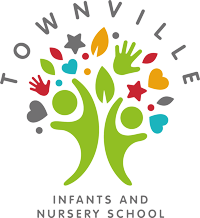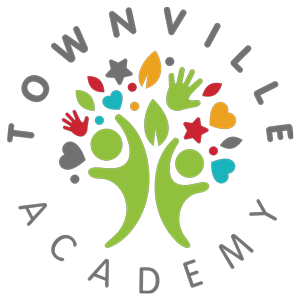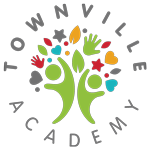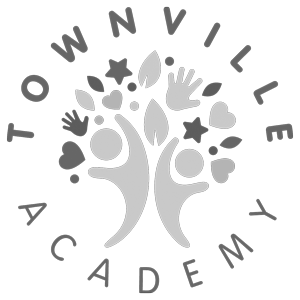Religion & World Views
– Curriculum information
Intent
At Townville Infant and Nursery School, we aspire to offer the best possible early education for all our children in a happy, safe, inclusive environment.
Through our religious education curriculum, we aim to ensure our children:
- gain coherent knowledge and deep understanding of a range of religions and world views
- are inspired and curious to find out and know more about different religions and cultures
- understand the complexity of people’s lives locally, nationally and globally, the diversity of societies and the relationships between different groups, as well as their own identity
- ask and answer challenging questions about meaning and purpose in life, beliefs about God, ultimate reality, issues of right and wrong and what it means to be human.
- weigh up the value of wisdom from different sources, to develop and express their insights in response, and to agree or disagree respectfully
- Are equipped to combat prejudice, preparing them for adult life, employment and life-long learning
- Enhance their spiritual, moral, social, and cultural development
This builds upon the children’s prior knowledge gained through the foundation stage for Religious Education where children build upon their personal, social and emotional development and their understanding of the world to:
- Show sensitivity to their own and others’ needs
- Talk about the lives of people around them and their roles in society
- Understand the past through setting, characters ad events encountered in books read to them in class and storytelling
- Begin to know some similarities and differences between different religious and cultural communities in this country, drawing on their experiences and what has been read in class
Implementaion
At Townville Infant and Nursery School, we follow the Wakefield Agreed Syllabus and use the Key Objective Progression and Development by Year group to support skill and knowledge progression from Nursery through to Year 2.
These are divided into the following aspects:
- Believing (Religious beliefs, teachings, sources; questions about meaning, purpose and truth)
- Expressing (Religious and spiritual forms of expressions; questions about identity and diversity)
- Living (Religious practices and ways of living; questions about values and commitments) R.E. is taught through discrete weekly lessons, as well as special themed days or weeks.
At Townville Infant and Nursery School we believe that: RE explores big questions about life, to find out what people believe and what difference this makes to how they live, so that pupils can make sense of religion, reflecting on their own ideas and ways of living. In the Early Years, RE sits very firmly within the areas of personal, social and emotional development and understanding the world.
This framework enables children to develop a positive sense of themselves, and others, and to learn how to form positive and respectful relationships. They will do this through a balance of guided, planned teaching and pursuing their own learning within an enabling environment. They will begin to understand and value the differences of individuals and groups within their own immediate community. Children will have opportunity to develop their emerging moral and cultural awareness. Children in EYFS should encounter religions and worldviews through special people, books, times, places and objects and by visiting places of worship. They should listen to and talk about stories. Children can be introduced to subject specific words and use all their senses to explore beliefs, practices and forms of expression. They are encouraged to ask questions and reflect on their own feelings and experiences and to use their imagination and curiosity to develop their appreciation of and wonder at the world in which they live.
In Key Stage 1, our delivery of the RE curriculum ensures that pupils develop their knowledge and understanding of religions and worldviews, recognising their local, national and global contexts. They should use basic subject specific vocabulary. They should raise questions and begin to express their own views in response to the material they learn about and in response to questions about their ideas. Our long-term programme maps out the coverage of the discrete teaching and learning opportunities for children to develop their knowledge, skills and vocabulary. In addition to discrete teaching in R.E, links with other subject areas, as well as learning through assemblies and as part of the overall ethos of celebrating diversity within school, ensures that elements of the R.E curriculum are accessed by children throughout the year.
Within each RE lesson, children are reminded of the key knowledge and skills they will learn, use and develop throughout their RE lessons before being introduced to and reminded of key vocabulary. Children then spend time revisiting and reviewing prior learning before being introduced to new concepts, knowledge or skills in small steps. Our lesson design ensures that children are provided with ample opportunity to consolidate, build upon and apply taught knowledge and skills whilst developing their ability to question and think critically. Ongoing assessment of children’s knowledge and skills is used by class teachers to ensure that misconceptions are addressed, and next steps carefully planned for therefore enabling each child to make progress.
Religious education teaching is monitored regularly using a variety of strategies, such as book looks, lesson observations, feedback and pupil interviews. Throughout the delivery of each topic, the subject coordinator will gather information regarding the children’s outcomes and work collaboratively with the curriculum lead to plan appropriate next steps for future learning, as well as to provide an overview of teaching and learning within RE across school.
Impact
As critical thinkers and investigative learners’ children in EYFS will begin to:
- Develop and expand upon their positive self-worth and their ability to build positive and respectful relationships.
- Understand and value the differences of individuals and groups within their own immediate community.
- Understand and value the differences of individuals and groups within their own immediate community.
- Ask questions and reflect on their own feelings and experiences.
- Use their imagination and curiosity to develop their appreciation of and wonder at the world in which they live.
As a result of our carefully and skillfully sequenced, planned and taught RE curriculum, children in KS1 will:
- gain coherent knowledge and deep understanding of a range of religions and world views
- be inspired and curious to find out and know more about different religions and cultures
- understand the complexity of people’s lives locally, nationally and globally, the diversity of societies and the relationships between different groups, as well as their own identity
- ask and answer challenging questions about meaning and purpose in life, beliefs about God, ultimate reality, issues of right and wrong and what it means to be human.
- weigh up the value of wisdom from different sources, to develop and express their insights in response, and to agree or disagree respectfully
- be equipped to combat prejudice, preparing them for adult life, employment and life-long learning
- have enhanced their spiritual, moral, social, and cultural development
The outcomes and impact of our RE curriculum will be evidenced through clear progression in pupils work, pupil voice and cumulative floor books showcasing the progression of knowledge and skills that has taken place throughout their learning journey.
Further information:
‘The school encourages children to achieve their full potential.’
‘My child loves it there he loves all his new friends and the teachers.’
‘Good communication via the Marvellous Me app.’
‘The effort they put in to each child personally.’
‘The headteacher shows strong leadership and provides a clear direction for the school’s future.’
‘The school is driven and led by the pupils’ best interests. I also like the location of the school.’
‘Professional staff who work in partnership with us to provide the best for our children’s development.’
‘My daughter isn’t simply a number like she would be in a larger school.’
‘My child loves going to school.’
‘That anything you need to know an answer to the reception are most helpful.’
‘Great school with lovely teachers who really care about the children. Good range of after school clubs.’
‘My son seems to have developed exponentially.’
‘My child likes the teachers.’
‘It’s a small school makes everything a lot more personal.’
‘My childs best interests of learning have always been put first and the support has been great.’
‘The teachers seem to genuinely care about the children and their safety and encourage them to do well.’
‘It’s community spirit and welcome feel.’
‘I have received great feedback and communication about my son from his teacher since starting Townville.’
‘Made friends at school, little parties and activities you do for the children.’
‘How open and approachable the teachers and headteacher are. Very positive and forward-thinking attitudes.’
‘I feel like my children are treated as individuals.’




